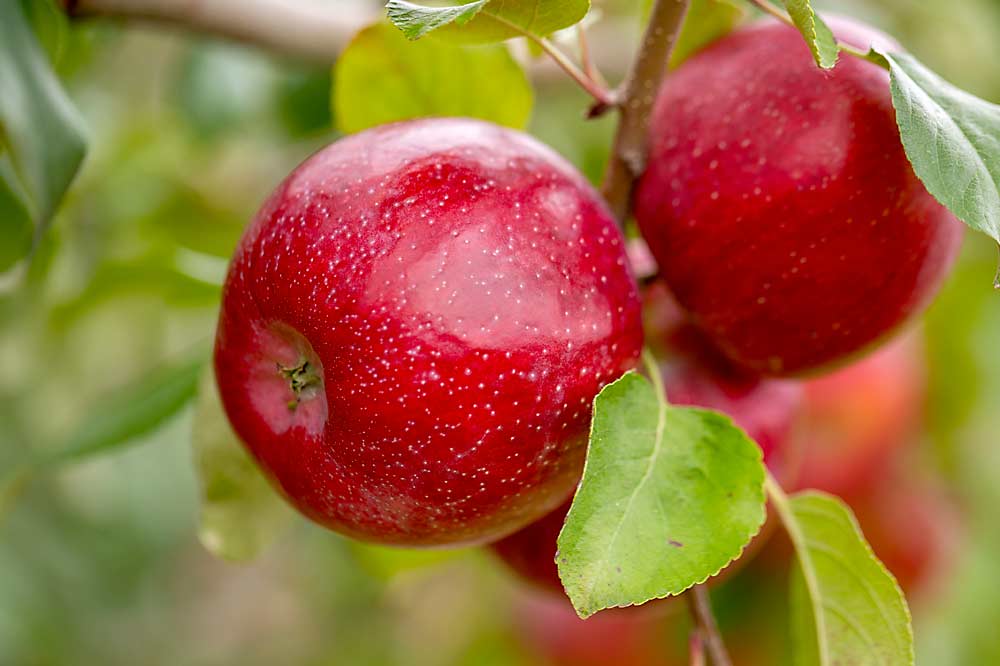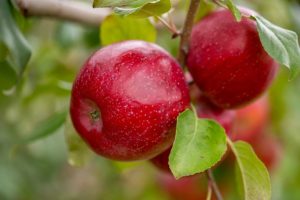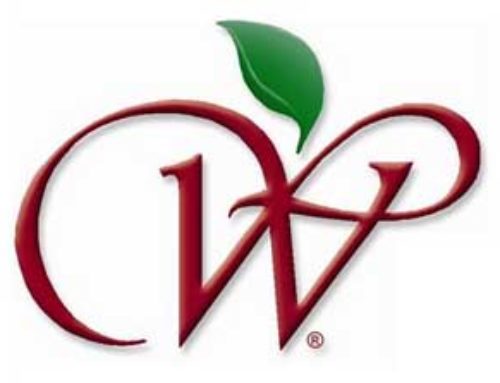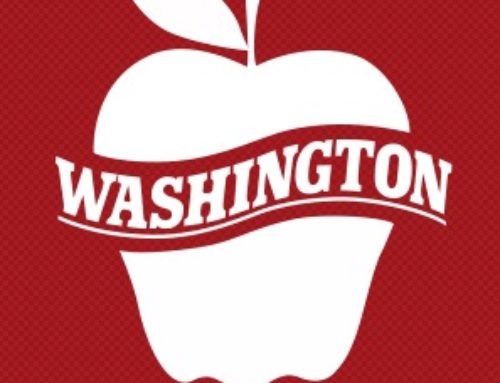
The University of Minnesota’s newest apple — MN80, to be marketed as Triumph — offers a lot of the promising characteristics a new apple needs to survive in a crowded marketplace: sweet and tart balance of flavor, firm but crisp texture, good storage life and attractive red overcolor. What makes it unique, however, is its double layer of resistance to apple scab, said University of Minnesota apple breeder David Bedford.
MN80’s two forms of genetic scab resistance come from its parents, Liberty and Honeycrisp. For years, Liberty was one of a few cultivars known to contain a single scab-resistant gene that was first identified in a flowering crab apple almost 80 years ago. But as all breeders know, pathogens can eventually overcome resistance from a single gene, and scab started doing that about two decades ago in Europe, he said.
After discovering that Honeycrisp has a different resistance gene, more than three decades ago, Bedford and fellow apple breeder Jim Luby started crossing Honeycrisp with a handful of other scab-resistant varieties, including Liberty. They were seeking a variety with the right characteristics for the marketplace and a “double firewall” of scab resistance. They found that with Triumph, Bedford said.
Unlike the breeding program’s previous releases — MN55 (marketed as Rave and First Kiss) and Minneiska (marketed as SweeTango) — MN80 is an open release, available to all U.S. growers. Managed, or club, releases help the breeding program sustain itself financially, but as a public institution it aims to provide open releases, too. Of the program’s 28 apple releases so far, only MN55 and Minneiska have been managed varieties, Bedford said.
Hardy to USDA Zone 4, MN80 harvests by late September, similar to or slightly later than Honeycrisp. Bedford said Triumph is a good enough apple to sit next to Honeycrisp, Rave/First Kiss and SweeTango on grocery store shelves, but that’s not the niche he expects it to fill. He thinks its scab resistance will make it a better fit for farm markets, home gardens and organic growers.
“It’s more of an all-purpose apple with a special feature,” he said. “We’d be happy to have a Washington grower put in 20,000 trees, but that’s probably not its market. The niche it will really fill is in the Midwest and East, where scab is an issue.”
Steve Wood, a grower in Sturgeon Bay, Wisconsin, has been growing 20 MN80 test trees for several years. He said the apples have good flavor and good keeping ability in refrigeration.
Wood is planting 1,000 MN80 trees on Vineland 1 rootstock this spring. He plans to market Triumph as a locally grown organic apple — hoping the variety’s scab resistance will enable him to grow it organically in a very scab-prone climate, he said.
Renae Moran, a University of Maine pomology professor, said Triumph’s flavor and texture have made it her new favorite apple, and she recommends Maine growers plant some. She’s been testing a few trees on Malling 26 since 2014. She said the apple tends to lose flavor in cold storage but maintains crispness well into winter without controlled atmosphere or 1-MCP treatment. She has not observed bitter pit or superficial scald in the variety, but she has observed mild soft scald and an internal browning disorder when harvested late.
Ian Merwin, a retired Cornell University professor and grower in Trumansburg, New York, put in a small test planting of MN80 on Budagovsky 9 in 2013. He said the trees have set good annual crops since 2015. Triumph’s fruit size and appearance are excellent, and his direct-market customers have rated it very highly for flavor and texture. The fruit hangs for weeks in good condition with very few drops. Trees have moderate vigor with good branch angles.
Merwin recommends the variety to his fellow Finger Lakes growers.
“I think it is a good choice for growers who want something similar to Honeycrisp, without all the hassles of Honeycrisp,” he said.
Bedford and Luby picked the trade name “Triumph” for multiple reasons. It triumphs over scab, for one thing. And the “Tri” part represents the three winners of reduced chemical use: consumers, growers and the environment.
“It’s gotten much harder to name apples,” Bedford said. “When Jim and I kicked around naming ideas for Honeycrisp, we decided it was crisp and sweet and we went with that. Now, with the nuances of trademarking, it’s easier to name your children than an apple.”
Released earlier this year, MN80 trees are sold out for 2021. For a list of licensed nurseries, visit mnhardy.umn.edu/buy/buy-apples.
—by Matt Milkovich







Leave A Comment